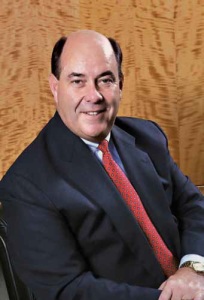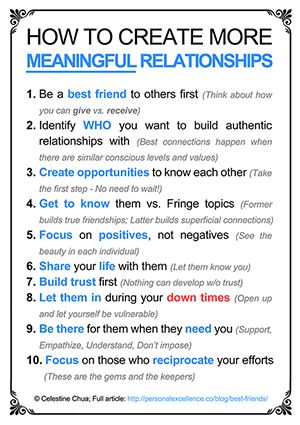Click here to return to Blog Post Intro
Today’s Chief HR Officer

“The primary factor separating winning companies from the also-rans is the quality and strategic development of employees.” – J. Randall MacDonald, Chief HR Officer, IBM
One of the biggest challenges for top leadership isn’t getting the best people; there are many talented and innovative professionals. The real challenge often lies in encouraging high-performing people to work together as a team. In the end, you’re only as good as the people with whom you work.
Therefore, leaders must be willing to get outside their comfort zones and heighten their understanding of different cultures. We can do this only by being willing to meet and learn about people different from ourselves.
Perhaps the most fundamental role for the CHRO is to drive internal initiatives that enable business strategies, strengthen leadership, and engage the hearts and minds of employees. CHROs serve as the developer and staunch supporters of company culture and values. The best HR professionals are those who think like business leaders—not only HR leaders—to influence business strategy and develop programs that drive the whole company forward.
The role of the Chief HR Officer is 24/7. People who’ve done it point out that every year, you get better at balancing it, but you have to be ready emotionally and physically. It’s a marathon, not a sprint.
People who’ve been there and done that strongly urge those who are new to the position to Develop a Personal Board of Directors. An external personal board of directors can help with issues that are hard to discuss internally. This is a safe set of external resources, who can give advice, calibration, and mentoring. Keep these connections strong! Consider at least three different perspectives:
- Leaders who are ahead in their career 10-15 years.
- Current peers across industries, who can provide safe places to get feedback in the moment.
- People who are up & coming, such as younger HR professionals, students, and interns, who keep up with the latest trends & technologies.
The CHRO as Strategic Advisor & Talent Architect
Playing the role of talent architect requires that CHROs help the executive team see the importance of talent, identify existing and expected future talent gaps, and come to own the talent agenda. As the war for talent heats up, organizations need to move from an attitude of “that’s HR’s job” to “that’s one of my most important roles as a manager in partnership with HR.”
Great talent management has two natural enemies:
- Hoarding: keeping talent to themselves; and
- Incrementalism: not thinking about how to stretch talent.
The only way for organizations to achieve their goals is to gain the enthusiastic, passionate commitment of every employee. You can instruct employees to reach certain goals, but you’ll only get to the highest levels if you engage your people—their hearts and minds—in achieving them together. According to a 2001 Hay Group Study, as much as 35% of the variability in discretionary performance is a result of managerial styles and behaviors.
Similarly, research at Center for Effective Organizations shows that the quality of HR’s strategic contribution is correlated more with how well HR educates leaders than how well HR adds value by delivering high-quality services and much more than how well HR adds value by ensuring compliance with rules and guidelines.
I (Brady) always point to the critical roles of HR as: Stewards of Organization Capabilities and Stewards of Organization Culture. The Chief HR Officer echoes that sentiment, noting that core values are brought to life by the actions and spoken words of the company’s leaders and through storytelling. The CHRO is typically the person most responsible for keeping the core values alive—crafting policies and programs to reinforce the values and messages to employees and externally.
In times of crisis, leaders must articulate a vision for the company that takes people beyond the crisis. People yearn for something they can hold on to and convince themselves they have a future where they are.
The CHRO as Counselor/Confidant/Coach
Chief HR Officers must cultivate a reputation as a listener and champion of frontline employees. In many ways, CHROs play a special role as the organization’s conscience. So, courage is needed to raise issues that could be sensitive or invite conflict. You are not doing your job if you simply choose to remain silent on a tough issue. Workers expect their organization to live up to high standards of fairness, justice, and equality. CHROs can never forget their important role as advocate for the workers.
In addition, CHROs need to manage relationships across, which requires putting as much focus on building the strong relationships with senior peers, especially early in their tenure as they do learning more about the business and formulating an HR agenda. It is important to note that many CHROs derail because they focus primarily on supporting the CEO and do not take sufficient time to build support among their peers.
Finally, CHROs must work closely with the CEO or the head of the organization. The CEO wants to know you will protect her integrity and reinforce her credibility. And most of all, she wants you to help keep her out of trouble:
- What does your CEO worry about most?
- What counsel will really be in the best interests of your company?
- How can you make constructive change happen?
- How can you help your CEO stay out of trouble?
Effective CEOs connect with members of the team; provide clear, specific, and sometimes tough feedback to individuals; and make the hard calls in differentiating among performance levels of the various team members, especially to the point of moving out low performers. How can you as a HR Leader help them succeed with these important responsibilities?
The CHRO as Leader of the HR Function
An HR Professor once shared that in his estimation, the best HR leaders are those who “lead from behind.” Success is best spoken through the work HR leaders and their teams deliver and the impact it makes on the business.
In 2009, Unilever took development of its HR team to the next level by developing its one-pager called Compass—which uses 3+1 Goal Setting. Each employee sets 3 business goals and 1 development goal at the beginning of the year. This emphasizes that each employee takes his or her respective development seriously, as defined by “plus 1” in goal setting.
Existing Chief HR Officers point out that your HR Team will often be one of your most challenging constituencies. Many HR Executives have been trained to act as servant leaders, viewing their role as clearing the way for their own teams to do the work. When you find yourself in the top chair as CHRO, the expectations of your team rise to an even higher level. On the one hand, you want to continue to be viewed as a servant leader and show the team that you have impact. But that is balanced with retaining your objectivity which at times requires decisions like, “We can’t do that,” or “It isn’t the right use of company resources at this time.”
New CHROs need to create quick wins! Identify a few things that can be fixed right away, and act on them. Build a 90-Day Plan, which may include:
- Accelerating knowledge of the industry & business;
- Building relationships and partnerships with peers and key line leaders; and
- Conducting a preliminary baseline assessment of the state of the HR function & talent.
Characteristics of Today’s CHRO
Today’s successful Chief HR Officer has the following characteristics:
- Trusted advisor to the top management team;
- Developer of HR strategy and practices that drive business performance;
- HR expert with a track record of building world-class HR teams;
- 15-20 years of experience, including top generalist and relevant industry experience
- Understands the organization culture
Today, CEOs are most worried about: implementing a new strategy, creating a capacity for change, building leadership depth, innovating new products, ensuring talent, and building disciplines in the company to deliver what it promises. These concerns of CEOs are the solutions that CHROs should bring to the strategic discussion.
In The Why of Work (see August 31 Blog Post), Dave & Wendy Ulrich suggest that leaders are meaning makers who help employees discover why they are working in good times and bad. When CHROs help leaders become managers of meaning, they create sustainable organizations.
Four knowledge areas that play critical roles in the success or failure of a CHRO:
- Know the business: how the firm makes money and how people serve as a competitive advantage; and know the rhythm of the business.
- Know how to lead
- Know people
- Know yourself
It is the combination of knowing clearly what one believes and the courage to stand up for those beliefs that leads every successful CHRO to be willing to have that “put your badge on the table” moment. As stewards for the organization’s capabilities and culture, CHROs must be willing to stand up for the workforce when it’s needed most.
Finally, it is important to establish a personal brand as a leader, as an HR professional, and as an organization. That’s one reason I started “Out of This World Leadership.” That’s my personal leadership brand…have you thought about yours?

